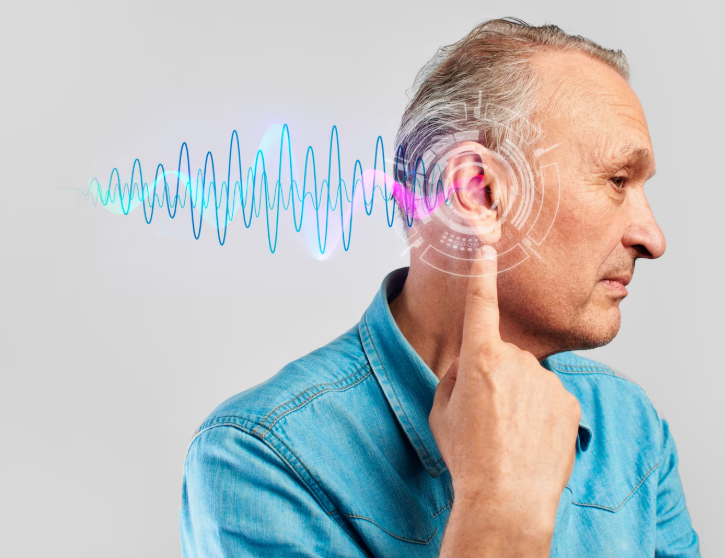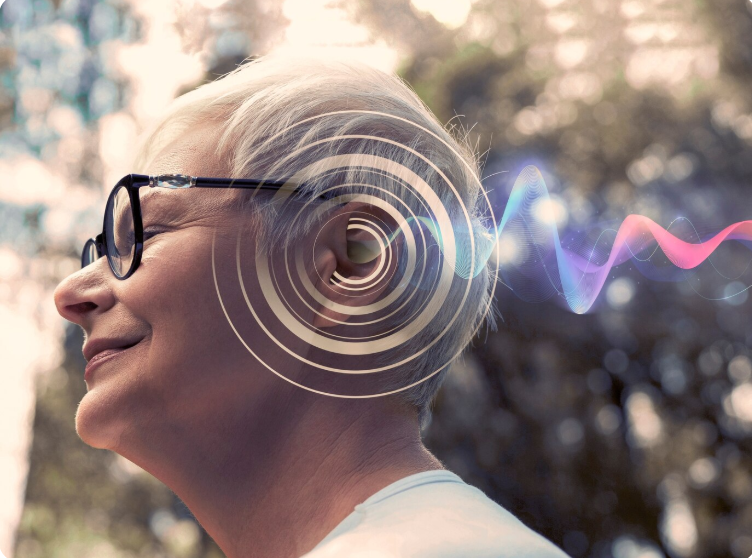What if ignoring your hearing could cost you your memory? That’s the unsettling conclusion of a growing body of scientific research linking hearing loss to cognitive decline and even dementia. And yet, many adults delay addressing their hearing health until symptoms are advanced.
According to the World Health Organization, over 1.5 billion people live with some degree of hearing loss—many without realizing the cognitive risk.
In this article, we’ll explore how hearing and brain health are deeply connected, what science says about their relationship, and what you can do now to protect both.
The Science Behind the Hearing-Brain Connection
A major study published by Johns Hopkins in 2023 revealed that older adults with untreated hearing loss were significantly more likely to develop dementia over time. Those who used hearing aids, however, saw their risk cut by up to 50%.
Another meta-analysis involving over 137,000 participants found that hearing aid use was associated with a 19% lower risk of cognitive decline. The evidence is clear: hearing loss doesn’t just affect the ears—it rewires the brain.
“When the brain has to work harder to interpret unclear sounds, it has fewer resources left for memory, reasoning, and decision-making.” — NIH Research Brief, 2023

How Hearing Loss Impacts Brain Health
1. Cognitive Overload
When hearing fades, the brain works overtime to decode distorted sound signals. This increases mental fatigue and takes energy away from functions like memory retention and focus.
2. Social Withdrawal and Isolation
Difficulty following conversations often leads to social avoidance. Over time, this isolation is a well-known risk factor for depression and dementia.
3. Neurological Changes
Brain imaging studies have shown that hearing loss is associated with accelerated shrinkage in the auditory cortex, and even in areas responsible for language and memory.
This structural loss in gray matter may be a silent driver of cognitive decline in older adults.

What You Can Do to Protect Both Hearing and Cognitive Function
Get Your Hearing Checked Regularly
Most people wait 5–10 years after symptoms start to seek help. Experts recommend annual hearing screenings starting at age 55—or earlier if you notice signs like tinnitus or frequent “What did you say?” moments.
Use Hearing Aids When Needed
Modern hearing aids are discreet, effective, and—as shown by research—can significantly slow cognitive decline when used early.
Support Brain and Auditory Health with Nutrition
A balanced diet rich in omega-3s, zinc, magnesium, vitamins A, C, and E helps protect nerve cells and reduce inflammation in both the brain and ears.
Stay Mentally and Socially Engaged
Reading, puzzles, group activities, and even conversations with friends help preserve neural connections—especially when hearing is supported.

Why This Matters Now More Than Ever
With global life expectancy rising, the risk of age-related cognitive diseases is increasing too. Yet hearing loss is one of the few major risk factors for dementia that’s both common and highly modifiable.
The Lancet Commission on Dementia Prevention, Intervention, and Care reports that hearing loss in midlife may account for up to 8% of all dementia cases—more than any other single risk factor.
Consider a Natural Approach to Daily Auditory Support
If you’re starting to notice early signs of hearing decline or simply want to maintain your auditory and cognitive health, supporting your system nutritionally may offer a powerful advantage.
That’s where targeted formulas with plant-based extracts, amino acids, and neuroprotective nutrients can play a role. These supplements don’t replace medical devices, but they can support circulation, nerve signaling, and antioxidant defense in both ears and brain.


